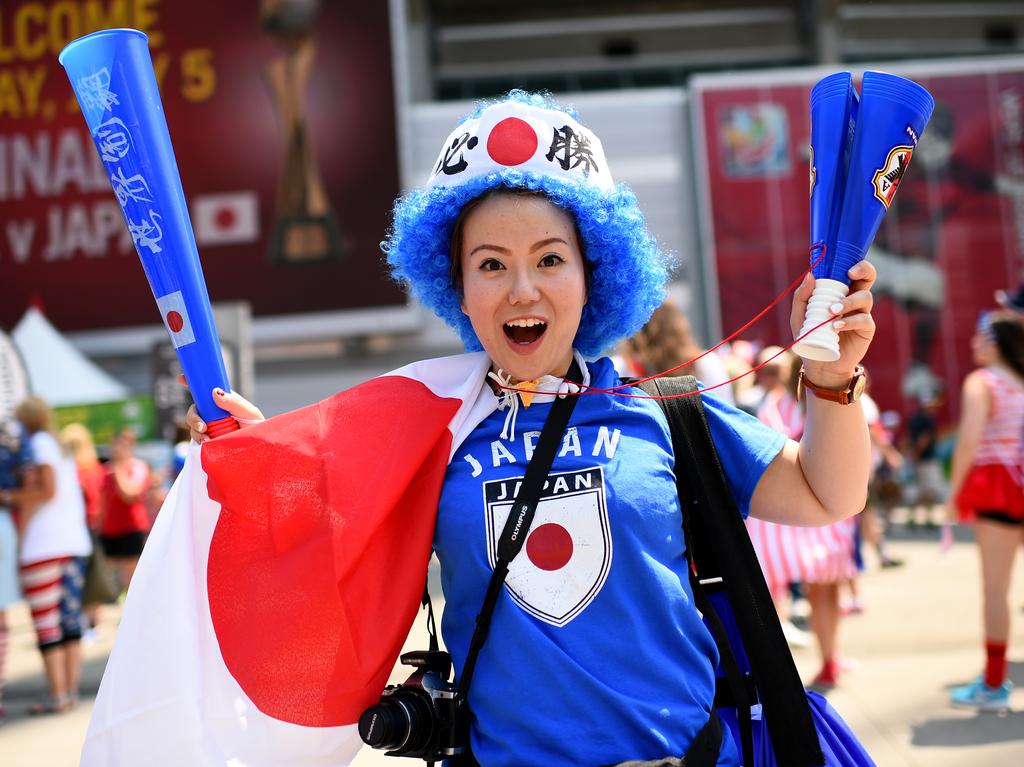Japan fans turn to drink as 'Nadeshiko' sink

Madoka Kataoka was on her third beer of the morning on Monday even before Japan kicked off against the United States in the women's World Cup final.
A quarter of an hour later, a little after eight in the morning, she had switched to something stronger after a Carli Lloyd wonder goal from the halfway line put the Americans four up. By the end of a 5-2 thrashing she was close to tears.
"That was brutal," said Kataoka, 27, a barista who looked in need of a double espresso. "What an awful start to the week. I moved on to vodka martinis for medicinal purposes as Japan were getting battered."
Millions across Japan watching live on television, many in bars or cafes, experienced that same sinking feeling as the holders were overpowered in the Vancouver final.
Lloyd completed a quickfire hat-trick with a long-range strike that David Beckham would have been proud of, sending groans echoing around a bar in Tokyo's Shibuya district as the ball looped in.
"Wow, just like Beckham," salesman Yukihiro Hatayama, 34, told AFP, cradling his head in his hands. "It's embarrassing now. I hope they have mercy on us."
Japan did salvage a measure of pride, and Yuki Ogimi's goal was replayed over and over on Japanese TV after the match, giving the impression the "Nadeshiko" -- named after a frilly pink carnation -- had won the game.
But most Japanese fans sat in stunned silence after their team's horror start.
"I hadn't even ordered a drink and it was 4-0," sighed student Masa Imai. "The Americans were too strong. Japan's players looked like little girls."
Half-time heralded a rush for the bar, although some fans slunk sheepishly for the exit, bowing apologetically as they joined the ranks of salarymen heading for trains to work.
American Katie Harding suppressed the urge to gloat.
"That was just amazing," said the 23-year-old student. "I'm glad Japan came back a bit. But even happier they didn't come back all the way."
Many Japanese fans saluted their team's efforts in reaching the final, four years after their sensational triumph in Germany, when they beat the US on penalties to provide a ray of joy to a nation recovering from a deadly tsunami.
"I'm proud of them," said engineer Shusaku Motoyama, 36, staring at the screen as the Japanese players traipsed up to collect their silver medals. "They never give up -- the men's team could learn a lot from them."
Sitting next to him, graphic designer Akira Yagi nodded sagely, still nursing a beer.
"Japan won four years ago so we shouldn't be greedy," said the 41-year-old. "Winning the World Cup last time gave hope to so many people. That was a more beautiful story."





![Coupe du Monde [Femmes]](https://s.hs-data.com/bilder/wettbewerbe/50/300.gif)
![Japon [Femmes]](https://s.hs-data.com/bilder/wappen/klein/2672.gif?fallback=png)